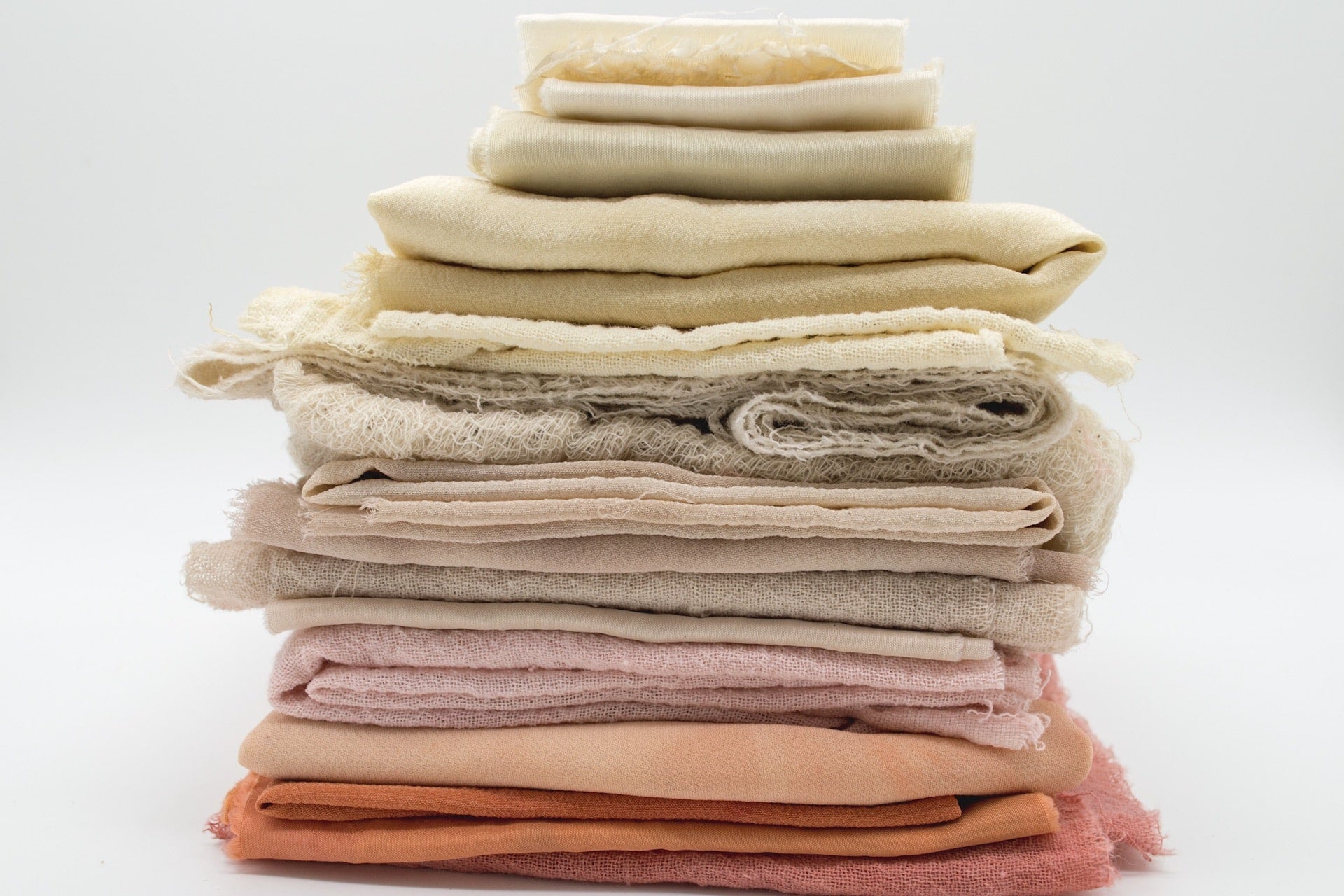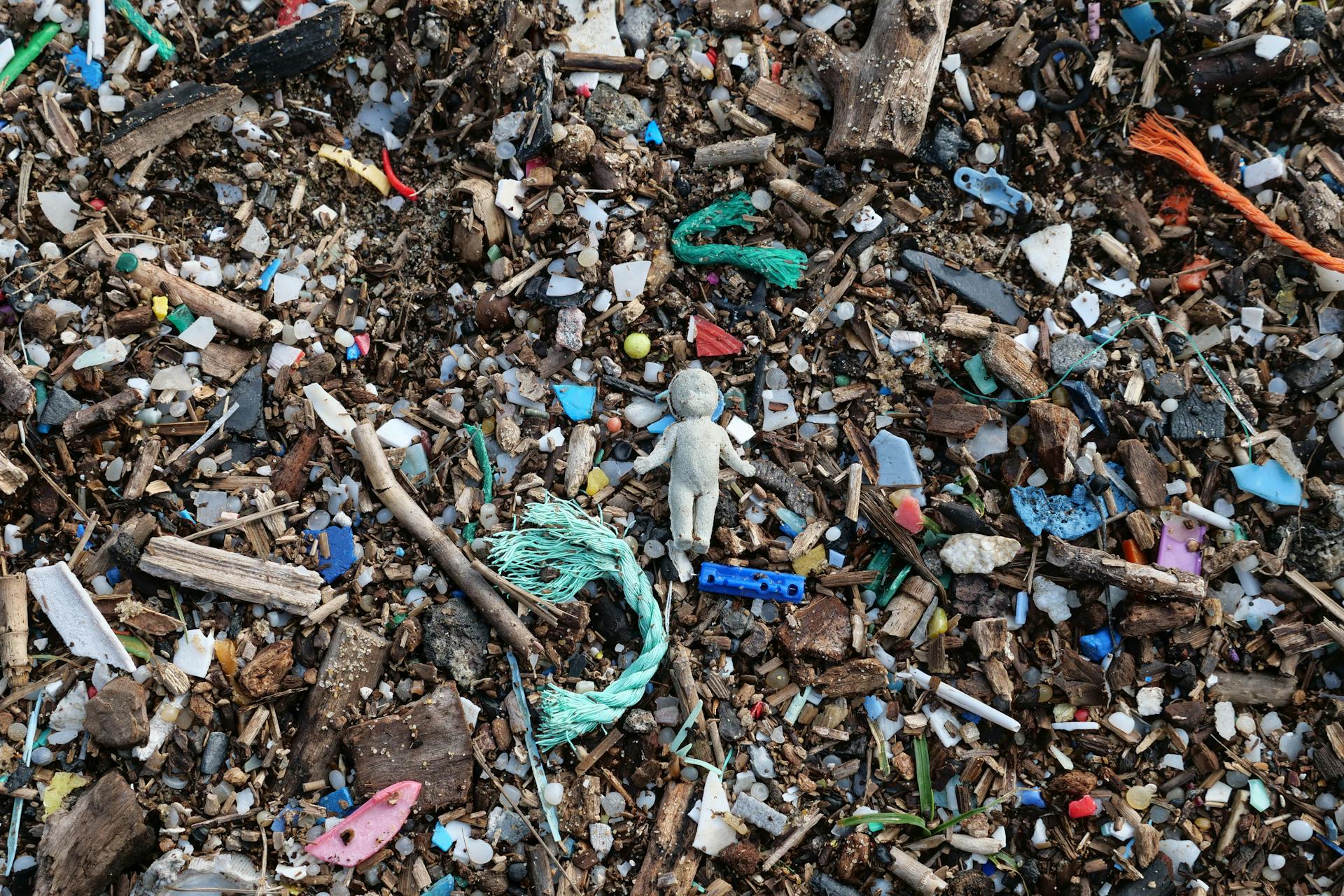Here’s a roundup of some of the finest sustainable fashion stories that hit the news in July.

Mushroom leather is losing money in the race for alternative materials development
July 4, 2023
One of our big predictions for this year was that there would be even more mushrooms within the sustainable fashion industry. The reason being that enterprising folk have been developing new fabrics from the root systems of mushrooms: mycelium. This particular prediction looks like it may be under threat, however, with one of the major players in the space, Bolt Threads, pausing the production of its fungus-based leather alternative, ‘Mylo’, despite it being “devastatingly close” to commercial scale.
The reason? Well, it turns out that in addition to inflationary pressures, there are fewer funding opportunities. The CEO has said that investor attention has moved on to new areas, such as the attention grabbing topic of the moment: artificial intelligence.
It seems that while innovative plant-based fabrics continue to attract funding, the investment that is needed to scale up production is getting harder to come by.
Gucci: the first luxury brand in Italy to be certified for gender parity
July 10, 2023
Gucci is making unexpected waves for its sustainability performance and yet more praise - and proof - has arrived this July.
The luxury brand ranked second in the newest Fashion Transparency Index report, moving forward by a remarkable 21 percentage points from last year. And the icing on the cake: Gucci is now the first luxury Italian house to obtain a Bureau Veritas certification for gender parity.
The independent certifying body assessed their progress based on six areas: 1) culture and strategy, 2) governance, 3) human resources procedures, 4) opportunities for growth and inclusion of women, 5) gender pay equity, and 6) support for parenthood and work-life balance. In 2022, nearly two-thirds of Gucci employees were women, and more than half of the management positions were held by women. Remember folks: ‘sustainability’ isn’t just about the environment.
Industry progress on equality can be slow, and even disappointing at times. But clearly, positive change that challenges the status quo is worth celebrating.
In an effort to cut waste, France will help pay for clothing repairs
July 12, 2023
Good news for you if you live in France. Over there (or where you are), the government seems to be making impressive moves on the sustainable fashion front, such as new transparency requirements. And now, they’ve just revealed that starting October, they’ll pay a “repair bonus” for having pre-loved garments mended instead of thrown away. Meaning, you’ll be able to claim back up to €25 for a repair, depending on the repair’s complexity. This comes at an appropriate time after the disappointing news on many high-street brands’ clothing take-back schemes being just another stroke of deception, which we cover below at the end of this post.
In France alone, an estimated 700,000 tonnes of clothing is thrown away annually, two-thirds ending up in landfill. Under the new scheme, run by Refashion, those who carry out the repairs - such as sewing workshops, shoemakers, and tailors - will be supported financially. The repair bonus, for those repairing their clothes, will be drawn from a generous €154 million fund from the government for the next five years.
A #Barbiecore collection for resale platform ThredUp
July 19, 2023
Before the objections start, be rest assured that this particular collaboration didn’t lead to the production of brand new stuff. So no, ThredUp, one of the world’s largest secondhand clothing platforms, hasn’t succumbed to the short-term gains of fast-fashion consumerism.
Instead, they’re working with Jacqueline Durran, costume designer of the record-breaking Barbie movie, to create a custom collection of Barbie-inspired looks. The special curation comprises nearly 300 secondhand pieces that already exist on ThredUp’s inventory - from bags and belts, to clothes and more. It’s the full-on #Barbiecore dreamland aesthetic, made available to the masses.
In an official statement, Duran said, “As a former vintage seller and designer known for period pieces, I’m passionate about reimagining the old and turning it into something entirely new.”
Trends are fun and exciting, but there’s something to be said if they can be enjoyed in a way that doesn’t come at the expense of the environment.
Plastic-eating enzymes technology to help recycle clothing
July 26, 2023
Technology, whether it’s blockchain or virtual reality, is advancing fast these days. In the case of sustainable fashion, the scale of investment is likely several magnitudes smaller than that of generative AI and large language models (LLMs). But, it’s just as important.
This recent collaboration unites uber-trendy athletic clothing company Lululemon with Australian enviro-tech startup Samsara Eco. Their mission: to make new clothes by breaking down and recycling the original polyester and nylon from old garments. Before this multi-year agreement, Samara Eco was already able to refine naturally-occurring enzymes into efficiently recycled PET (plastic you’re likely to find in bottles and other packaging) and polyester plastics, creating new virgin-grade plastic.
This is the first minority investment into a recycling company by Lululemon and the first partnership with the fashion industry for Samsara Eco, who’s hoping to hit a goal of recycling 1.5 million tonnes of textiles by 2030.
Take-back programs: just another trick by brands?
July 2023
An investigation by Changing Markets Foundation into clothing take-back schemes found that they are not quite as they seem and often just a new greenwashing ploy from fast fashion retailers. The idea should be for customers to return clothes to retailers so that they can be given a second life: donated to those in need or recycled into new clothing.
Which sounds noble but that’s not what’s happening in most cases. Changing Markets Foundation tracked 21 items across 10 retailers (H&M, Zara, C&A, Primark, Nike, Boohoo, New Look, The North Face, Uniqlo and M&S). The returned items were all in good condition so it was shocking to see that 16 of the 21 items were either destroyed, left in a warehouse or shipped to Africa (where usually up to half is re-purposed or destroyed). Only five items were reused in Europe or made it to a resale shop. That means less than a quarter of items were reused!
It seems not a month passes without some kind of sustainability subterfuge from fast fashion brands. And we hope more of it gets called out with the new regulations that are afoot.
That’s it for this month but we’ll be back next month with another selection of sustainable fashion stories, for your delectation.





